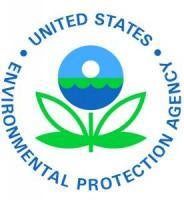The U.S. Environmental Protection Agency (EPA) recently awarded over $5 million in grants for clean diesel projects in California. This was part of the agency’s ongoing national campaign with $30 million being awarded to reduce harmful diesel exhaust that can lead to asthma attacks and premature deaths.
“Five major metropolitan areas in California, some with the poorest air quality in the nation, have received grant funds specifically targeting projects to reduce diesel emissions,” said Jared Blumenfeld, EPA’s Regional Administrator for the Pacific Southwest. “Employees, residents, and visitors in those areas will be able to breathe cleaner, healthier air. Awarding these grants for important diesel emission reduction projects demonstrates how collaboration amongst public and private partners can benefit everyone.”
The West Coast Collaborative administers the Diesel Emission Reduction Act (DERA) program in California. The DERA program is designed to help owners and operators replace, retrofit or repower older medium and heavy-duty diesel-powered engines like those that operate in marine vessels, port equipment locomotives, construction and agriculture equipment, trucks and buses.
The California competitive DERA grant projects and funding amounts announced today are:
-
· South Coast Air Quality Management District received $1,045,993 to replace approximately 50 dirty, old, medium-duty urban delivery diesel trucks with fully electric delivery trucks. The project will focus on replacing trucks that are model year 2003 or older, whose principal operations are in highly impacted communities in the south coast region. These vehicles produce no tailpipe emissions, so the air quality benefits and fuel reductions prove significant. The annual emission reductions for 50 trucks include the following: 11.79 tons of nitrogen oxides (NOx), 0.48 tons of particulate matter (PM), 1.16 tons of hydrocarbons (HC), 5.61 tons of carbon monoxide (CO), and 707 tons of carbon dioxide (CO2).
-
· City of Long Beach – Harbor Department received $1,344,146 to reduce diesel emissions by retrofitting and/or replacing sixteen pieces of port cargo handling equipment at the Port of Long Beach terminals including the replacement of yard tractors with zero-emission automated guided vehicles (AGV) that use battery cells and the exhaust retrofit of rubber tired gantry cranes. This project will achieve emissions reductions ahead of regulatory compliance dates and will reduce 25 tons of NOx, 173 tons of CO, 33 tons of PM, and 733 tons of CO2 over the life of the project.
-
· Bay Area Air Quality Management District received $898,833 to replace at least 22 dirty, old heavy-duty drayage trucks with cleaner, newer ones that operate at or around ports in the Bay Area. The project will focus on replacing trucks that are model year 2003 or older, whose principal operations are in highly impacted communities. This truck replacement project will reduce 278 tons of NOx, 24.7 tons of PM, 18.4 tons of HC, and 100 tons of CO emissions during the project life, or 10 years.
-
· San Joaquin Valley Unified Air Pollution Control District received $898,833 to replace at least 35 heavy-duty, long-haul waste transporting diesel trucks in the San Joaquin Valley with newer, cleaner model year engines that meet or exceed 2011 emission standards. (These trucks operate in areas that receive a disproportionate amount of air emissions, such as Kettleman City.) The life of the cleaner, lower emission trucks is approximately 1 to 1.5 million vehicle miles traveled, thus operating for at least ten years. These trucks will achieve up to a 97 percent reduction of PM and up to 94 percent reduction of NOx, equating to lifetime emission reductions of 1,249 tons of NOx, 50 tons of PM, 54 tons of HC, and 388 tons of COx.
-
· Sacramento Metropolitan Air Quality Management District received $700,000 to repower a locomotive engine built in 1979 to the cleanest available level. The locomotive operates along corridors in the Sacramento, San Joaquin Valley and San Francisco Bay areas. Over the life of this project emissions will be reduced by 647 tons of NOx, 34 tons of PM 2.5, and 49 tons of HC.
The California state allocation DERA grant also announced today is for $454,899 to the California Air Resources Board (CARB) to help retrofit school buses throughout California. Through a partnership project between CARB and the San Joaquin Valley Air Pollution Control District (SJVAPCD), 37 heavy-duty school buses operating throughout California will install verified diesel particulate filters (DPF). CARB will provide $322,101 in additional funds to support this project. This retrofit project is expected to reduce 5 tons of PM, 7 tons of HC, and 43 tons of CO emissions during its operational life. Retrofitting these school buses will reduce harmful diesel emissions, resulting in a reduction in children’s exposure to diesel exhaust.
Diesel engines are durable, fuel-efficient workhorses in the American economy. However, older diesel engines that predate newer, cleaner standards emit large amounts of air pollutants, such as NOx and PM. These pollutants are linked to health problems, including asthma, lung and heart disease and even premature death. Clean diesel projects funded through these grants nationwide will work to address the more than 11 million older diesel engines that continue to emit higher levels of pollution.
In this year’s competition, winners were selected based on a proposal’s potential for maximizing health and environmental benefits by targeting areas that have significant air quality issues. Reduced air pollution from diesel engines in these areas can have a direct and significant impact on community health.
New this year is an increased funding availability per award that will allow EPA to target larger engines used in marine vessels and locomotives, which will result in significant emissions reduced per engine.
DERA was enacted in 2005 and since it was first funded in fiscal year 2008, EPA has awarded over 500 grants nationwide. These projects have reduced hundreds of thousands of tons of air pollution and saved millions of gallons of fuel. More on the grants and the National Clean Diesel Campaign may be found at: http://www.epa.gov/cleandiesel .
Along the Pacific Coast states, these projects are part of the West Coast Collaborative. The Collaborative is part of the National Clean Diesel Campaign. On the West Coast, it is a an ambitious partnership between leaders from federal, state, and local government, the private sector and environmental groups committed to reducing diesel emissions. Partners come from all over the Western North America, including Alaska, Arizona, California, Hawaii, Idaho, Nevada, Oregon, Washington, the Pacific Island Territories of American Samoa, Guam, and the Commonwealth of the Northern Marianas Islands, and Canada and Mexico.



 i
i

